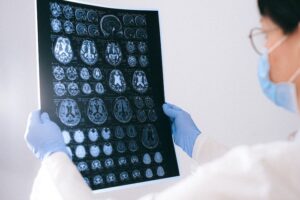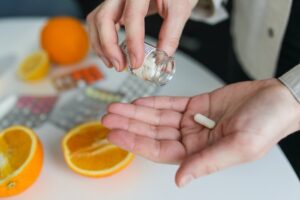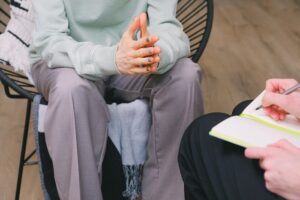Drug and Alcohol Rehab in Coventry
There are around 14,000 high-risk drinkers in Coventry, but only 6% of these people are in an active treatment programme.
Of the opiate users, only 46% are in an addiction rehab treatment programme.
Are you considering attending a drug and alcohol rehabilitation centre in Coventry or near the Coventry area? Are you unsure where to start? We can help.
We are OK Rehab, a recovery advocate service run by individuals who are often in the recovery process ourselves.
We know better than anyone what you are experiencing right now.
Thanks to our experience dealing with other clients across the country, we can support you in seeking suitable alcohol or drug addiction treatments.
This can be a confusing time, so we strive to make this process as simple and easy as possible so you can get the care you need in no time, with much less stress.
If you are someone looking for help for a loved one dealing with addiction risks, we also offer intervention services, support, and general advice about your next steps.
Some frequently asked questions are answered below for those who wish to know more.
Our experts can help you access an alcohol & drug rehabilitation programme in Coventry for any substance addictions, including:
- Binge drinking and alcoholism treatment
- Benzodiazepine addiction treatment
- Buprenorphine addiction treatment
- Cannabis addiction treatment and a guided cannabis addiction rehabilitation programme
- Cocaine rehab and crack cocaine rehab
- Crystal meth detox and other amphetamine addiction treatment
- Ecstasy rehab
- Fentanyl addiction treatment
- Heroin addiction treatment and other forms of opiate addiction and opioid use disorder treatment
- Ketamine addiction treatment
- Methadone rehab
- Nicotine addiction
- Prescription drug addictions treatment
- Treatment for behavioural addictions such as gambling addiction, shopping addiction, exercise addiction, internet addiction, sex addiction, pornography addiction, gaming addiction and eating disorder treatment
For more information about addiction help at drug & alcohol rehab Coventry, feel free to give us a call on 0800 326 5559
Interventions for addiction in Coventry

Loving someone who is stuck in the addiction cycle is challenging.
Their behaviour changes. Some might manipulate and lie; mood swings can be really scary.
This doesn’t stop love, though. When you’re at a loss for what to do, staging an intervention can become a familial lifeline.
You might opt for asking a professional to join you in approaching your loved one.
The professional would lead it, and after raising concerns, they would list available drug and alcohol treatment options and encourage a stay at a selection of suitable local rehab clinics.
Another intervention that thousands of families have used effectively is called the CRAFT intervention. This places emphasis on positive behaviours and interactions.
You have guidance which reveals how to communicate and set boundaries. CRAFT empowers each person who employs it and supports your loved one in accessing an addiction rehab treatment programme.
Get all the addiction help you need from an alcohol & drug rehab clinic in Coventry – call us for free on 0800 326 5559
What is an alcohol & drug addiction?

Addiction is a brain disorder – specifically, it is a disease of the mind.
It is characterised by an individual frequently and compulsively engaging in a certain act that offers some kind of reward, despite the consequences.
According to a charity study, around one in three people in the UK are addicted to something.
Though this may seem high, it is worth noting that this does not exclusively mean an addiction to alcohol or drugs – you can develop an addiction to almost anything.
Drugs and alcohol are not the only things that can cause addiction.
In fact, anything from shopping and collecting items to gambling and the internet can become highly addictive and produce adverse effects, just like drink or drugs, although these addictions usually inflict less actual damage to the body.
Learn more about how to access addiction help at Coventry drug and alcohol rehab by giving us a call on 0800 326 5559
What causes alcohol & drug addiction?

Put simply, an addiction usually develops from a habit, and a habit can occur because of a whole host of reasons.
Many individuals use drugs and alcohol recreationally at least a few times a month, and when paired with a healthy diet and only consumed in moderation, this can stay at a healthy level for their whole lives.
Unfortunately, there are times when recreational use of these substances can become a habit – drinking a few pints every weekend at the pub or having a glass of wine with each dinner, seemingly harmless acts can soon develop into much more.
When this becomes a habit, it is easy for the individual to become accustomed to the high that comes with using the substance, leading them to desire and chase that high more.
This can lead to an alcohol problem or drug addiction when the individual’s tolerance for the substance begins to increase with each use due to the frequency of it being consumed.
This usually results in the person having to up the dose each time to reach the same desired effect, leading to more severe addiction and more and more harm being done to the body each time.
This is a very simplistic view of what causes addiction, and for some, it is caused by using drinks or drugs as a tool to cope with certain aspects of life rather than just a bad habit.
When consumed, drugs and alcohol release chemicals into the brain, and these chemicals work to make us feel looser, happier, and more carefree and stress-free.
Because of this, many individuals who are struggling with addiction now begin by drinking or using drugs in order to avoid negative emotions or ‘triggers’.
These triggers can appear in many forms, such as dysfunctional families, abusive relationships, peer pressure, work stresses, and traumatic events.
Addiction is very likely to occur when a person begins to use a substance as a coping mechanism to avoid the heavy emotions that come with these triggers.
Get the help you need to beat your addiction to alcohol, drugs or even certain behaviours by giving our recovery team a call on 0800 326 5559
How does attending drug & alcohol rehab in Coventry help with addiction?

Because an addiction to alcohol or drugs will impact you both physically and mentally, rehab clinics work to treat both the body and the brain together.
Whilst there is no definitive ‘cure’ or remedy for addiction, treating the body with detoxification and taking care of the mental aspects of addiction with therapy and counselling is the most effective way toward recovery from a drug or alcohol problem.
Types of therapy you can receive at a private rehabilitation centre include:
- Acceptance and Commitment Therapy
- Acupuncture
- Art therapy
- Cognitive behavioural therapy
- Dialectical behaviour therapy
- Drama therapy
- Eye Movement Desensitization and Reprocessing
- Group psychotherapy
- Motivational therapy
- Rational Emotive Behavior Therapy
- Brief intervention
- Contingency management
- Coping mechanism treatment
- Equine therapy
- Family therapy
- Individual therapy
- Mindfulness
- Motivational interviewing
- Music therapy
It is no immediate or overnight fix, and all effective recovery methods require the work and effort to be put in by you, too, for it to be successful and lost lasting.
This dual approach to treating an addiction is why many at-home recovery methods fail so soon.
Whilst DIY detoxes may succeed in ridding the body of physical substance addictions, the emotional and psychological triggers remain and, without treating those, too, relapse is much more likely, making it harder to break out of the addiction cycle.
You can slowly come to terms with your addiction to alcohol or drugs through multiple therapies and other drug treatment options at drug and alcohol rehab Coventry.
This stage of the recovery process starts with the patient being able to see addiction as the disease it is.
From then, you will learn more about yourself and what led you to this point, identify your triggers and the root causes of your addiction, how to avoid them when you leave rehab, and discover new ways to cope with negative emotions and events.
You will most likely experience a combination of a few different types of therapy, as they tend to be more successful when paired together.
What you participate in will be decided through an evaluation of you and your addiction, which will help us narrow down what drug and alcohol treatment options will best suit your personal needs.
You may also take part in other alcohol and drug treatment options, such as contingency management, which incentivises good behaviour with money and other prizes.
Find your way towards sobriety today with professional addiction help – call our expert recovery team on 0800 326 5559
Am I addicted?

To enter a drug and alcohol rehabilitation centre in Coventry, you need to have an addiction.
That might sound obvious, but many who use substances find it hard to acknowledge and admit.
In this scenario, there are questions you can ask yourself that can make it clear whether or not a drug and alcohol abuse problem is present.
Saying yes to any of the following reveals that it’s highly likely you require the help of an addiction treatment programme:
- Do you ever feel like stopping drugs and alcohol would benefit you?
- When you drink or take drugs, does it make you feel guilty?
- Have you ever felt cutting down would help you?
- Do you need the substance when you wake up in order to face the day?
If you’re worried about saying yes to any of these questions and want to reach out to someone, you can contact OK Rehab.
Thing you might be an alcoholic or suffering from drug addiction? Talk to our experts on 0800 326 5559
How much does a stay at a Coventry rehab centre cost?

Going to a private addiction rehab clinic costs money.
However, you benefit from highly experienced staff and qualified recovery nurses who specialise in supporting people in your circumstances, and you also get 24-hour care, food and a bedroom.
These drug and alcohol treatment options cover every aspect of your physical, emotional, mental, and spiritual health, helping you to address your drug or alcohol problem in the best possible way.
Addiction is a complex disease and therefore needs to be addressed in a variety of ways.
The cost of an addiction rehab treatment programme at a rehabilitation centre for one week might be as low as £1,000, or could be as high as £10,000. It really depends on where you go, as establishments vary in the level of luxury they offer.
Please call our 24-Hour Helpline: 0800 326 5559
Can your health insurance cover a stay at a drug & alcohol rehab centre in Coventry?

It’s definitely worth checking out whether your private health insurance covers the cost of a stay at drug & alcohol rehab Coventry.
Many do. Remember, though, if you claim through it, the future premiums will be higher.
For those whose health insurance was taken through their job, then it’s highly likely that you’ll be under oath to admit your addiction and that you’re going to rehab to your employer.
Please call our 24-Hour Helpline: 0800 326 5559
Is there funding available through the NHS that will pay for drug & alcohol addiction treatments?

The government does offer some funding for people to enter addiction treatment centres.
It is, however, very limited, meaning that the sum available is very small compared to the number of people who require an addiction rehab treatment programme and the number of people who apply for the funding.
To access drug and alcohol rehabilitation services in Coventry through NHS/government funding, you’ll have to be actively involved with local drug and rehab services.
It’s also imperative that you’re able to prove how committed you are to achieving sobriety over a length of time.
At this point, you can then apply to Coventry City Council for funding. They’ll decide from a large number of applications which to award the money to for a residential.
Free treatment services available in Coventry include:
1. Change Grow Live Coventry
Address: 1a Lamb Street, Coventry, CV1 4AE
Telephone: 02476 010 241
Website: https://www.changegrowlive.org/drug-alcohol-service-coventry/info
2. Rise Coventry
Address: Stoney Stanton Road, Coventry, CV1 4FS
Telephone: 024 7696 1368
Website: https://cwrise.com/
3. Positive Choices Coventry (CGL)
Address: 23-25 City Arcade, Coventry, CV1 3HX
Telephone: 02476 553 130
Website: https://www.changegrowlive.org/positive-choices-coventry
4. Healthy Lifestyles Coventry
Address: Second Floor Office Suite John Sinclair House, Canal Basin, Coventry, CV1 4LY
Telephone: 0800 122 3780
Website: https://hlscoventry.org/about-us/
5. Aquarius Coventry
Address: 8 Ironmonger Row, Coventry, West Midlands, CV1 1FD
Telephone: 07880 035356
Website: https://aquarius.org.uk/
Please call our 24-Hour Helpline: 0800 326 5559
How long does drug & alcohol addiction treatment take in a private rehab centre in Coventry?

Rehab programmes usually last around 28 days. This is typical because it offers a long enough time to get through the initial period of craving and detox and to begin learning, developing and practising new healthy behaviours.
Sometimes people might enter drug and alcohol rehab Coventry for a seven-to-ten day detox to rid the body of a physically addictive substance in a safe way under the care of a specialist recovery team.
Please call our 24-Hour Helpline: 0800 326 5559
Types of alcohol & drug addiction treatment services available in Coventry

There are two ways of accessing addiction rehab services in the UK: free addiction treatment options from local drug and alcohol services and attending a private addiction rehab clinic.
Local services are funded by the government and are found in towns and cities across the UK, providing essential support for those with drug and alcohol problems.
In addition, there are usually drop-in rehab clinics, a needle exchange, some one-to-one sessions, and weekly addiction support groups.
These alcohol and drug addiction treatment services treat you as an outpatient because you routinely enter the drug & alcohol rehab clinic for an addiction treatment programme while living at home.
A private addiction rehab clinic in Coventry or near the Coventry area will offer a tailored programme to suit your needs.
This will be based on a thorough addiction assessment, considering factors like your addiction history, your current rate of substance abuse / drug and alcohol abuse, your past experiences of relapse and the wider addiction cycle, and your home recovery environment.
This could take the form of either outpatient treatment or inpatient rehab services depending on those specific needs.
You’ll participate in a wide range of psychological and alternative therapies.
In addition, there will be relaxing exercises and new therapeutic experiences to bring a new understanding of your addiction and how it impacts your life.
Medications are prescribed where needed to ensure a safe detoxification process at the beginning of inpatient treatment programmes.
During these treatment services, you will live on-site in order to fully immerse yourself in your alcohol and drug treatment options. These are therefore known as inpatient rehab services.
Inpatient rehabs are widely considered to be the most effective form of addiction treatment.
Please call our 24-Hour Helpline: 0800 326 5559
Alcohol detox and alcohol rehab Coventry

When you enter a drug and alcohol rehab in Coventry for alcohol addiction, you’ll likely be suffering from both a physical dependency and a psychological addiction.
This dual effect is one of the key reasons why an alcoholic will often find it very hard to recover.
As soon as you enter, you’ll begin with a seven-to-ten day detox which includes a doctor prescribing medication such as Librium. This reduces any uncomfortable symptoms linked to:
- Sweating
- Delirium tremens
- Sickness and diarrhoea
- Hallucinations
- Seizures
It also helps keep you alive because stopping alcohol intake suddenly can lead to death through seizures.
After detoxification, ongoing therapies will focus on your mental and emotional health in order to tackle the root causes of your alcohol problem.
Therapists and addiction counsellors will guide you to develop self-awareness and self-compassion, both of which will allow you to forgive yourself for addictive behaviours and to grow from them.
Group sessions will provide the space to reduce isolation and enable emotional connection to people who totally understand addiction to alcohol due to their own experience.
There you will share ideas and knowledge that support your recovery journey, setting you up to continue sobriety even after you leave your alcohol & drug addiction treatment centre.
Stages of alcohol detox
Alcohol dependence can be confirmed fast and efficiently using the Alcohol Use Disorders Identification Test, DSM-5 or CAGE questionnaire.
Dependent drinkers will have built up a strong tolerance to alcohol, and experience unpleasant withdrawal symptoms (alcohol withdrawal symptoms) or alcohol withdrawal syndrome when they stop drinking, so these symptoms need to be managed carefully.
To ensure that the risk of seizures is curtailed an on-site medical team may prescribe patients with Chlordiazepoxide, brand name Librium, as they undergo detox as this has been proven to offer more protection against the risk of seizures.
A medically-assisted detoxification (alcohol detox) is needed in order to try to prevent the effects of alcohol withdrawal and minimise the potential impacts of alcohol abuse that may complicate this stage, including Wernicke encephalopathy and delirium tremens.
A successful alcohol detox will break your alcohol dependence and allow you to properly engage with the psychological therapies you will experience at your alcohol and drug addiction treatment centre.
Please call our 24-Hour Helpline: 0800 326 5559
Rehab for cannabis in Coventry

When people begin smoking cannabis, they rarely realise how strong it is and its consequences on the brain and behaviour. Rehab programmes support many users whose lives have been reduced by this substance.
Effects of long-term use include a loss of interest in life, usual activities, a disruption to appetite and metabolism, and anxiety-related symptoms such as worry, stress, panic, compulsiveness, paranoia, hallucinations and psychosis.
These are just some of the key challenges that must be tackled at cannabis rehabs.
Staff members and qualified recovery nurses will support you in understanding how cannabis addiction changes your thoughts, emotions, and behaviours.
You will reflect on how your cannabis use became addictive, learn how to adapt to take back control of your mind, and decide how you will choose to live in the future.
Through relaxed exercises such as yoga or tai chi, you’ll start to “be in” your body in a new way.
Cannabis rehabs offer an internal tranquillity and space to return to throughout the rest of your life as you develop these helpful activities into familiar routines.
Please call our 24-Hour Helpline: 0800 326 5559
Rehab for heroin in Coventry

Another substance that creates a physical dependence is heroin.
As such, heroin withdrawal can be very uncomfortable for users.
In fact, this is one of the reasons that heroin is so difficult to quit.
Heroin withdrawal symptoms can make a person:
- Violently shake
- Sweat profusely
- Paranoid
- Confused
- Irritable
- Hallucinate
- Experience severe pain in their body
That’s why heroin detox under the supervision of a doctor is critical.
At a rehabilitation centre, this lasts up to ten days and covers the tapered prescription of Subutex, the medication used to make heroin withdrawal symptoms as smooth as possible.
After this initial heroin detox stage, you’ll begin the psychological work, which provides you with the tools to remain abstinent.
First, you’ll find out what it is that drives you to use heroin and what things make it easy to return to.
You’ll develop new coping strategies so that you have a different answer to difficult situations in the future.
In addition, your drug addiction treatment centre will also provide you with enjoyable activities, like music therapy and equine therapy, to take your mind elsewhere and bring you valuable new experiences.
You might also receive a treatment programme for other diseases resulting from the effects of heroin addiction, such as hepatitis.
Please call our 24-Hour Helpline: 0800 326 5559
Rehab for cocaine in Coventry

Increasingly, people are developing cocaine addiction.
Not only is it more available worldwide and therefore in the UK too, but this fact also means it’s much cheaper.
Its glamourisation often seduces people in the media and, despite cocaine and crack cocaine both being a Class A, don’t realise just how addictive it is.
Cocaine creates a seriously compulsive drug addiction which takes over thought processes.
It leaves the body filled with toxins that deteriorate the internal organs and vastly increase the likelihood of developing illnesses and diseases.
Whilst you will not need specialist addiction help to detox from cocaine safely, a residential drug rehab clinic will help you tackle the psychological aspect of your addiction.
Instead of a cocaine detox, your cocaine and crack cocaine rehab treatment will begin with therapists and addiction counsellors guiding you to understand the substance through new knowledge of what it does internally – how repeated use changes your thoughts, perceptions, and your physical and mental health.
You’ll begin to practise skills that make you aware of triggers and how to react in healthy ways, which will support abstinence after you leave your drug addiction treatment centre.
Through conversation and exploring new activities linked to education, creativity and exercise, you’ll begin to develop goals for a meaningful and healthy cocaine-free life.
Please call our 24-Hour Helpline: 0800 326 5559
What therapies are available at alcohol & drug rehab centres in Coventry?

It’s imperative you participate in a wide range of addiction treatments for drug and alcohol problems, as this will cover the many different approaches to healing.
When you cover more, you find the things that suit you most to take into the future, but in the early stages of recovery, these different approaches work harmoniously to structure your leap into successful abstinence.
Therapies and treatments commonly experienced at rehab clinics include:
- Addiction counselling – using conversation to talk about memories, experiences, worries and the future with qualified addiction counsellors.
- Cognitive Behavioural Therapy (CBT) – to begin retraining the brain’s processes which is the key to changing addictive behaviours into healthy ones.
- Dialectical Behavioural Therapy (DBT) – is offered to those who would benefit from learning new ways to respond to emotional triggers.
- Motivational interviewing – where staff lead you in conversation to feel more self-confident and focused on becoming sober long-term.
- Brief interventions – offering new perspectives to what you already know about substance addictions and bringing you new reflections to encourage healing.
- Alternative therapies – equine therapy, art therapy, and music therapy support you to heal through creativity and care.
- Holistic approaches – mindfulness, yoga, reiki, ear acupuncture, and therapeutic massage to give you enjoyable moments in your body without engaging in substance addictions.
- 12 step recovery methods groups which support you to identify a higher power – whether that means god, Mother Nature or something else. This provides a source of strength and connection through a humble approach to your recovery methods, as well as providing the essential peer support of a recovery support group.
- SMART Recovery sessions – aimed at developing practical goals and tips to make their recovery journey easier on a day-to-day basis.
- Family therapy – to offer new supportive, positive, and healthy communication methods.
Please call our 24-Hour Helpline: 0800 326 5559
Drug addiction and dual diagnosis in Coventry

When people ente alcohol & drug addiction treatment centres and they have both a mental health condition (such as treatment-resistant depression, post-traumatic stress disorder (PTSD), bipolar disorder, borderline personality disorder, obsessive-compulsive disorder (OCD), codependency treatment or schizophrenia or anxiety) alongside an addiction to alcohol or drugs, they’re likely to be given a dual diagnosis.
This means that both illnesses exist alongside each other.
The diagnosis primarily lets staff and qualified recovery nurses understand that you might need a different approach to both addiction and mental health treatment.
For a start, you’ll be treated for both areas, making your recovery journey more achievable.
You will get a complete psychiatric assessment when you enter an alcohol and drug addiciton treatment centre, which will see if you need specialised psychiatric treatments during your addiction treatment programme.
A dual diagnosis is very common in the field of alcohol and drug addiction.
People often turn to drugs and alcohol when they struggle with treatment-resistant depression, PTSD, bipolar disorder etc., to try and self-medicate and feel better. Unfortunately, when this happens a lot, problematic use can unfold.
Many people who suffer from substance addictions become so affected by these psychoactive substances that it upsets their internal hormones and chemical balances, causing them to develop mental health problems.
At a rehabilitation centre, there is no taboo around either, and you can speak freely with the staff about what you’re experiencing.
Many organisations across the UK offer free mental health treatment and support, whether you are also suffering from addiction or not.
Some of these include Mind UK, Young Minds, Rethink Mental Illness, Samaritans and Papyrus.
Organisations in Coventry and near the Coventry area which provide addiction support for free include:
- The local NHS Foundation Trust
- Turning Point
- We Are With You
- The National Association for Children of Alcoholics
- Change Grow Live
- Alateen
Rehab clinics and addiction support organisations are advised by the American Society of Addiction Medicine and the National Institute for Health and Care Excellence so you are in good hands and can confidently expect professional person-centered care.
You may get access to sober living houses as part of your aftercare after you leave your rehab centre to help you maintain your sobriety and help with relapse prevention, giving you a better chance of successfully breaking the addiciton cycle.
Please call our 24-Hour Helpline: 0800 326 5559
The importance of relapse prevention plans after alcohol and drug rehab in Coventry

After all the hard work and effort you put in at drug and alcohol rehabilitation centres in Coventry, you want to be able to continue practising what you’ve learned when you return home and remain sober.
To ensure this, the rehabilitation facility staff and qualified recovery nurses will provide an aftercare programme which will include a relapse prevention plan.
This will provide guidance on how to deal with triggers in the moment they occur, giving you a better chance of successfully breaking the addiction cycle.
You’ll learn how to pause and identify what is triggering the emotional reaction making you want the substance. With this knowledge, you then turn to a new healthy behaviour to adopt instead. Your relapse prevention plan will remind you of this.
Your aftercare programme will also list steps you can take when you’re finding it particularly difficult to resist slipping back into addiction.
This could be certain people you can ring or activities you can engage with to help reinforce your determination.
There will also be a list of goals for you to start working on in order to change your lifestyle to make abstinence easier as time goes on.
Please call our 24-Hour Helpline: 0800 326 5559
How do I stay sober after I leave a Coventry rehab centre?

Leaving a rehab clinic won’t mean that you are on your own, and we will still be available 24/7 via the helpline if you need us.
To help you stay sober when you’re back home, we recommend a few things:
- Examine your social group (and even your family) for anyone who could be potentially dangerous to your recovery journey. It would help if you surrounded yourself with the right people who will support you.
- Take up a new hobby – getting creative or joining a club or sports team can greatly improve your overall mental health and offer a great distraction from any temptations that may be around.
We also suggest you stay vigilant and always be on the lookout for any potential warning signs of a relapse the avoid falling back into the addiction cycle.
If you do become concerned about your safety or addiction recovery journey, we are always just a phone call away.
If you wish to know more about our alcohol & drug addiction treatment services or would like to start an enquiry for yourself or a loved one, call us today on 0800 326 5559
Alcoholics Anonymous, SMART Recovery and other support services after rehab in Coventry

There are a few places you can go to for support, guidance, and connection upon leaving a rehabilitation facility should you want to meet a friendly face who understands what you’re facing.
- 12 Step groups such as Alcoholics Anonymous, Narcotics Anonymous and Cocaine Anonymous provide a mentoring type of support to help keep you focused. These addiction support groups follow the 12 step recovery methods, which include giving yourself over to a higher power.
- A home detox if you relapse from heroin or alcohol but don’t need to return to drug & alcohol rehabilitation centres. This will be overseen by a doctor who you’ll speak with each day medication is prescribed.
- Family support through Al-Anon and Nar-Anon, who offer advice and input to those you love who are finding it difficult to manage feelings around your addiction to alcohol or drugs.
- You can find outpatient support through your local drug and alcohol service, where you can access addiction support groups and helpful activities.
Please call our 24-Hour Helpline: 0800 326 5559
How should I prepare for alcohol & drug rehab in Coventry?

When preparing for rehab clinics, there are some things you can do to ensure your stay is more comfortable and rewarding.
Admin preparations can include letting the people in your life know where you will be going and why.
It is essential to have people, if possible, waiting for your return and offering their support for your recovery methods, as this will be a great help when you eventually leave your chosen rehab centre.
Also, make sure to let any employer know this addiction information too, and if it helps, maybe find cover for your workload whilst you will be away. Having a job to go back to will ensure that you have some sort of purpose and distraction when you leave our care.
Tie up any loose ends, such as setting up automatic payments for bills that will need to be paid whilst you are absent or getting a friend to look after any pets.
One of the most important preparations you can do, however, is internal.
Staying at a rehab clinic is no vacation, and it will be hard to recover from your drug or alcohol addictions.
Get yourself ready to put in the work and effort it requires, and make sure you are open to any drug or alcohol treatment options that are recommended to you.
Entering rehab clinics with a positive mental attitude can significantly improve your chances of a successful addiction recovery journey.
Please call our 24-Hour Helpline: 0800 326 5559
Drug and alcohol abuse in Coventry – Take action today

Are you living in Coventry and struggling to cope with an addiction? Are you unsure about what the next steps for your addiction recovery journey are? Do you need more addiction information before making a vital decision about your alcohol or drug treatment options?
It may be time to attend drug and alcohol rehab Coventry, and we can help get you there.
We are OK Rehab, a recovery-advocate service that aims to help anyone dealing with addiction receive whatever specific addiction rehab treatment programme they need, no matter their circumstances.
With our support, you can self-refer to local drug and alcohol rehabilitation centres or support services and be on the road to recovery in no time.
We believe that your recovery journey is possible regardless of the obstacles you may be facing right now, and our job is to help you achieve your goal of a substance-free life.
All of the rehab clinics in England and Wales that we work with are vetted by the Care Quality Commission (CQC).
Get help for alcohol or drug addiction across the West Midlands, including in Wolverhampton, Birmingham, Solihull, Dudley, Sandwell, Walsall, Bromwich and many others.
Call us today on 0800 326 5559 to hear more about our alcohol & drug addiction treatment services or to begin an enquiry for yourself.





